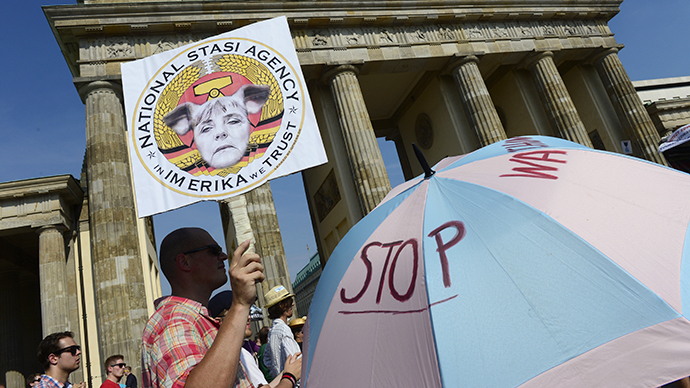Europe’s reaction to NSA spying ‘inadequate, nothing more than words’

European governments will try to give voice to people’s anger about NSA spying, but then they will put a lid on it as the interests of big businesses prevail, Paul Murphy, Irish Member of the European Parliament from the Socialist Party, told RT.
“There are words of
criticism but then both sides want to get on, for example, with
FTA, the free-trade agreement between the EU and the US, because
it’s in interests of big businesses of both sides,” he
said.
MEP Paul Murphy also said that despite the irritation between various governments over spying on each other, the most sinister purpose of surveillance is for them to spy on ordinary people at home and abroad.
RT:Let’s take a look at the situation. You know, a while ago when the Snowden’s revelations were first known to the public, the EU harshly criticized Washington for its actions. But right now we have the situation when one EU country is spying on another. So what sort of reaction can we expect from Brussels?
Paul Murphy: I think we’ll see what reaction we’ll get from Brussels. What it illustrates is the deep-rooted hypocrisy of the leaders of all countries of Europe and really around the world. Whereby they are happy to criticize other people spying on themselves, but they are all engaged in this, all of the major powers in the world are engaged in massive spying against each other. But also most importantly, states are involved in spying against their own people and other peoples around the world. I think what should come out from ordinary people across Europe is a clear message that we are opposed to the building of a security state, which is what’s happening, we are opposed to this massive surveillance of people and of elective representatives, and we demand people’s right to privacy.
RT:Well, looking at the situation in Europe at the moment we seem to have a different treatment for the situation, in Germany, for example. The US ambassador was officially, as we know, summoned to explain the situation to Germans, while the British ambassador was just invited to answer some questions. Why is that?
PM: I think it does reflect the fact that Germany and Britain are both in the European Union together, they are meant to be a part of a common political project and so it is more difficult for them to express the open antagonism that does exist. But at the same time, I think, it is going to have consequences and it will deepen the divide between the elites within Britain and the elites represented by the government within Germany. There is a historic difference there with Britain more representing an Atlanticist view of the European Union, obviously being a part of the so-called “five eyes” together with the US, Canada, Australia and New Zealand.
RT:OK, these are two EU countries, as you said, and they have strong historic and economic ties, but again, Berlin says that it’s illegal to use an embassy for electronic surveillance purposes and again, these allegations were proved to be true. What kind of consequences could London be facing?
PM: It depends on how far Germany wants to go. I mean if Germany really wanted to send a message that this is entirely unacceptable, they could call the ambassador in a serious way or ultimately shut down the embassy, send the ambassador home. I don’t think they’ll do that because there are certain constraints within which diplomacy takes place between the governments of the world. And so while they are expressing their position at the same time Angela Merkel has to know that her security forces are doing precisely the same in London, in Washington, as we speak.
I think what will actually happen, there will be an attempt by the governments to somewhat express and give voice to anger felt by people but then to try and put a lead on it. Because if you look what is happening between the EU and the US, I mean there are words of criticism but then both sides want to get on, for example, with FTA, the free-trade agreement between the EU and the US because it’s in interests of big businesses of both sides.
RT:Do you think that Europe is not putting enough pressure down on Washington?
PM: I think so. I think the response has been entirely inadequate and it’s being words and nothing more than words, while they continue, for example, with the negotiations on the EU-US free-trade agreement. I think it’s because they know the whole thing is full of hypocrisy and they know they are guilty probably as much as their technical capacities allows relative to the US. And I think it’s only through developing a movement and big pressure from below that the most important issue here – people’s, individuals’ rights of privacy, individual rights not to be spied upon, that that can prevail and can become a factor in the situation.
The statements, views and opinions expressed in this column are solely those of the author and do not necessarily represent those of RT.
The statements, views and opinions expressed in this column are solely those of the author and do not necessarily represent those of RT.












